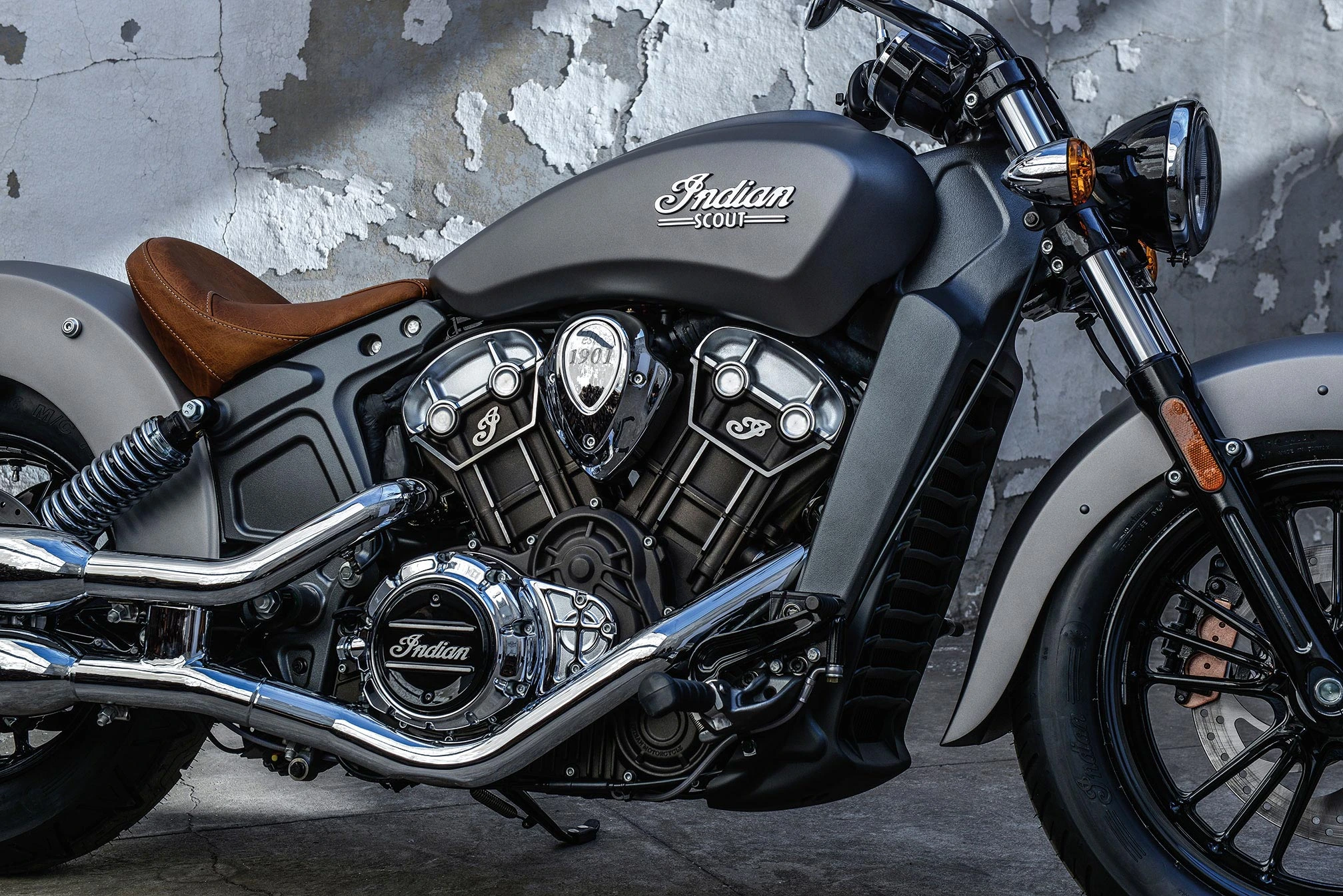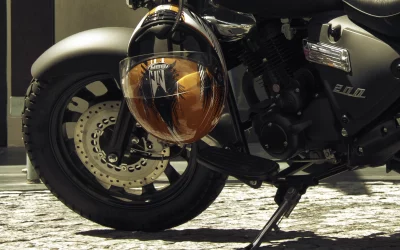Causes of Car and Motorcycle Collisions
When drivers of cars and motorcycles use the same road, there is no question that they must keep an eye out for one another. The exact element that makes riding a motorcycle so appealing is the trait that puts riders in danger of catastrophic injury—the motorcycle’s openness and vulnerability.
Motorcyclists may enjoy safe journeys as long as everyone shares the road and drives responsibly. However, when other drivers fail to see motorcycles or participate in irresponsible driving, the repercussions are often disastrous.
If you have suffered significant injuries while riding your motorcycle due to the carelessness of another motorist, consider calling a Colorado motorcycle accident attorney to explore your case. For more information, contact Warrior Motorcycle Accident Attorneys today.
Free Consultation
In Person | Phone | Zoom
The Most Common Reason for Car-Motorcycle Collisions
The most prevalent cause of motorcycle accidents is driver irresponsibility. When a passenger car driver fails to drive with care and caution, everyone around them, particularly motorcyclists, is in danger.
According to research, other drivers are at fault in more than half of multi-car accidents involving motorcyclists. Motorcyclists are 27 times more likely to die in an accident and five times more likely to be wounded than passenger car passengers every passenger car mile driven.
A driver’s license in Colorado is a privilege, not a right. Because a passenger car is bigger than a motorcycle, the driver does not have the right to bully, ignore, or participate in reckless driving on the road. Here are a few instances of how driver inattention might lead to a collision between a car and a motorcycle:
Refusal to Yield the Right-of-Way
A junction is one of the most hazardous areas for a motorcycle rider. According to the National Highway Traffic Safety Administration (NHTSA), intersections are the most prevalent car and motorcycle accidents.
Cars turning left at a junction often fail to surrender the right-of-way because they do not notice a motorcycle. According to the researchers, this is a cognitive problem since cars aren’t thinking about or anticipating a motorcycle to enter their route. Because motorcycles are not at the forefront of other drivers’ minds, the outcomes are often disastrous when the two collide at an intersection.
Spots of Inattention
Despite side and rearview mirrors, there are several blind spots in the vicinity of an car. In reality, blind spots cover at least 40% of a car’s perimeter. This makes lane changes particularly hazardous for motorcycles.
Drivers who make abrupt lane changes without signaling to give motorcycle riders little time to respond. No one should suffer life-changing injuries due to a car that failed to signal or correctly adjust its mirrors.
Perception Error
Many drivers fail to appropriately evaluate the space between themselves and an oncoming motorcycle. Drivers often drive out in front of a rider, oblivious to the pace at which the rider is traveling. The National Highway Traffic Safety Administration recommended that cars wait for motorcycles to pass before entering any route or municipal street.
Failure to wait before entering an intersection puts the rider in danger of using emergency braking, which may hurl the rider over the handlebars. The rider may potentially lose control of the motorcycle, causing it to slip out from beneath them.
In either situation, the rider will almost certainly collide with the road’s hard surface or another car, resulting in devastating injury or death.
Distracted drivers
As smartphone technology progresses, there is rising worry about distracted driving. According to AAA Foundation for Traffic Safety research, although 96 percent of those polled saw texting and emailing while driving as a severe concern, about half acknowledged partaking in the habit.
Every day, around nine individuals are killed in the United States due to a distracted motorist. Distracted driving extends beyond smartphone usage and encompasses the following activities, as defined by the Centers for Disease Control and Prevention:
Cognitive -Anything that draws your attention away from driving.
Visual – Anything that distracts your attention away from the road.
Manual – Anything that requires you to take your hands off the steering wheel.
A distracted driver goes into their handbag for an item, eats a sandwich while driving, or drives while unhappy. It may be too late for either driver to react and avoid a collision if a distracted driver notices a motorcycle.
Driving While Intoxicated
People continue to drink and drive despite various public safety efforts. While the legal limit for a driver’s blood alcohol content in Colorado is.08, the detrimental consequences might begin with the first drink.
Alcohol impairs a person’s driving skills in the following ways:
Improving response speed;
Improving eyesight, resulting in blurred or double vision; and
Improving color differentiation, making distinguishing traffic light colors harder.
They were driving when high on drugs may have comparable consequences and outcomes, when drivers are under the influence of drugs and alcohol, the danger of harming a motorcyclist or others on the road rises.
Driving While Drowsy
According to the National Sleep Foundation, driving when tired may have the same consequences as driving under the influence. Sleepy driving might result in a tired motorist straying into your path due to impaired judgment and slower response time. Driving when drowsy is often ascribed to a lack of sleep or undetected medical issues.
When riding a motorcycle, you have no means of knowing what another driver is doing as they pass you. You maintain your attention by keeping your eyes on the road, even if the person next to you has just left a bar or worked a long shift with little sleep.
Alternatively, the motorist in front of you may not have done any of these things but may still fail to keep an eye out for bikes. Their failure to glance twice or to be vigilant might transform your life in an instant. Every day, we are surrounded by negligent drivers, and no matter how cautiously you drive, you may meet one.
Motorcycle Injuries: What Are the Most Common Types?
A motorcycle does not have a strong chassis, airbags, or other crash defenses like a car. With no seatbelt, ejection from your motorcycle following an accident is nearly a certain conclusion. Protective equipment, such as a helmet, gloves, and protective clothes, can only do so much to keep major injuries at bay.
Several catastrophic injuries may occur when the human body collides with a hard surface, including:
Traumatic brain injury (TBI) – A TBI is defined by the Centers for Disease Control as a bump, blow, or jolt to the head or a penetrating head injury that affects normal brain function. While wearing a helmet offers some protection, the impact of a crash may still result in a TBI. Never take off your helmet until medical assistance arrives.
Spinal cord damage – This sort of injury causes paralysis and is one of the most serious injuries a person may get. Many individuals with a spinal cord injury must depend on a power chair for mobility, as well as home adaptations and personal-care help. The expenses of such an accident may go into the millions of dollars every year for the rest of the patient’s life.
Broken bones – During a motorcycle collision, one or more of the rider’s bones may shatter. Arms, legs, neck, and backbones may all be broken. You may need numerous operations and significant physical and occupational treatment depending on the severity of the fractures. Daily duties such as washing and dressing might become difficult, and your favorite leisure activities, such as golf or dance, maybe put on pause or must be discontinued permanently.
It is not fair to suffer one or more of these sorts of significant injuries due to another driver’s irresponsibility. In the circumstances involving liability, Colorado law authorizes accident victims to file civil proceedings. However, the rules are highly complicated and need the knowledge of an experienced personal injury attorney. Medical expenses continue to grow and ensuring you get the medical services you need sometimes necessitates filing a lawsuit.
Why Do You Need a Motorcycle Accident Lawyer?
A motorcycle collision caused by another motorist is a serious problem that requires legal counsel. When another motorist is in a hurry, inattentive, or drunk, public safety efforts to share the road or “give a second glance a second thought” are ineffective. When your injuries are serious, you may be required to remain in the hospital for an extended time, undergo treatments, have surgery, and lose time from work.
Even if you are continuously concerned about your expenses, your circumstance’s mental and financial stress necessitates respite.
Insurance companies want to make an initial settlement offer immediately after the accident to resolve the case as soon as possible. While their first offer may seem to be a big number of money for you, it is unlikely to meet your future medical demands.
Keep in mind that insurance companies are only concerned with their interests, not yours. It is a good idea to consult with a personal injury attorney about the specifics of your case.
Indeed, it is in your best interests not to communicate with insurance company personnel and, even more importantly, not to sign anything until you have spoken with an attorney.
You have nothing to lose by contacting one of the many Colorado motorcycle accident lawyers that provide free case assessments. If you cannot leave the hospital, you may assemble your evidence and arrange a consultation or ask the legal company if someone can come to you.
Struggle for Justice
When you ask someone why they ride a motorcycle, the response almost always includes the freedom of the open road. Motorcyclists claim that riding engages all of their senses, is calming, saves gasoline, and does so much more. For riders and their passengers, the freedom that comes with riding on two wheels is wonderful.
There is no justification for driving conduct that causes a biker’s significant injury—and occasionally death. Because of someone else’s bad judgments, your ability to ride might be lost for good. However, there are several precautions you can take to guarantee a safer ride, such as:
If you use a helmet, be sure it is DOT-approved. While helmets are not compulsory in Colorado, motorcyclists over the age of 21 who do not wear one must provide proof of at least $10,000 in medical insurance coverage.
Dress in luminous clothes.
Wipe down your mirrors.
Inspect all lights to verify they are in functioning condition.
Follow all driving laws.
Avoid risky habits such as drinking and driving.
These preventative measures are your greatest line of defense against a potential accident. Other acts, such as those committed by dangerous or irresponsible drivers, are beyond your control. There are occasions when there is nothing you can do to prevent an accident caused by someone else.
In an instance, your life may go from carefree to uncertain. A personal injury lawyer can assist you and your family get through this tough time by giving you the legal assistance you need.
Motorcycle attorneys have the negotiating abilities required to work with insurance carriers. If they cannot achieve an amicable settlement, the legal team you choose should be willing to go to trial.
The appropriate personal injury lawyer will fight hard for you while treating you and your family with dignity. They maintain open channels of contact so that you are never left wondering about the progress of your case. Keep in mind that a personal injury lawyer will be at your side throughout the lawsuit process.
If your motorcycle trip turns tragic owing to the carelessness of another motorist, you have rights under Colorado law. Schedule a free appointment as soon as possible to learn more about them and how a personal injury attorney might assist you.
Motorcycles and cars can share the road safely, provided everyone takes care and drives cautiously. Unfortunately, far too many drivers take risks that may lead to significant injury. Consider taking legal action to preserve your financial and medical future if you ride a motorcycle and suffer significant injuries through no fault of your own.







